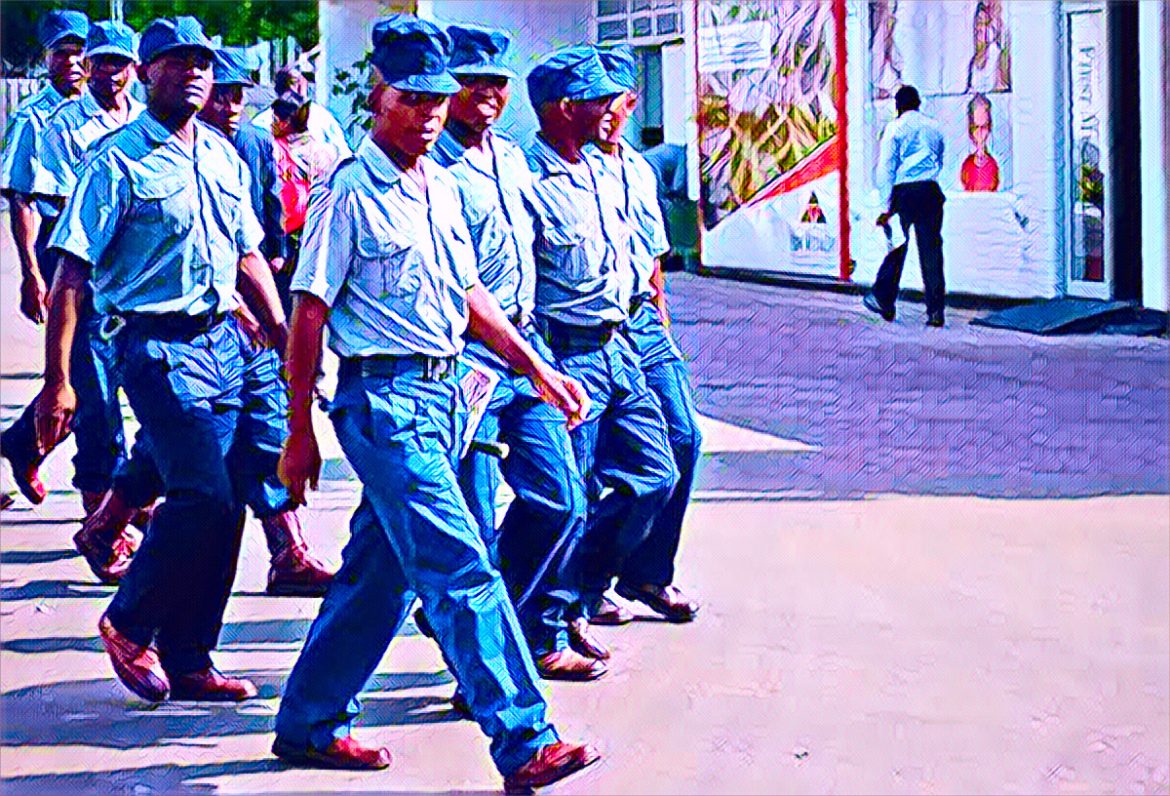There is growing unrest among junior police officers after the government abruptly ended their transport allowances. The allowance cut, which came without prior notice, has left many officers struggling to commute to work. Sources within the police force revealed that the removal of these allowances has forced officers into awkward negotiations with pirate taxis, known locally as mushikashika, for free rides.
These officers argue that this situation undermines their dignity and compromises their duty. They are tasked with enforcing regulations against the same mushikashika operators from whom they now seek favors. The withdrawal of the transport allowances has exacerbated the financial struggles of these junior officers, who already find it challenging to make ends meet with their average monthly earnings of $250 and ZiG1,000.
According to sources, the junior officers have not received their transport allowance since April. “Most of us got our April payslips last week, and that’s when we discovered the transport allowance had been scrapped,” said one officer, who requested anonymity. The allowance, which amounted to approximately $20, was insufficient to cover monthly transport costs but still provided crucial support.
Another officer voiced concerns about the government’s apparent disregard for their welfare. “Even if it was a small amount, it was more important that it was there than to scrap it off when we needed it.” Internal sources disclosed that some junior officers in the capital recently raised the issue with their superiors, only to be told to use their cycle allowances to purchase bicycles. This suggestion has been met with disbelief and anger.
One officer expressed frustration over the response from higher-ups who enjoy significant benefits such as top-of-the-range cars and other perks from the government. “Yes, we get a cycle allowance, but it is not for us to buy bicycles,” he said. “We are supposed to be given bicycles by the state and get a monthly allowance to maintain them. It’s a mockery to suggest that we should cycle to work. The situation that we are in is pathetic.”
The officer continued, “We wait for hours at bus stops asking for free rides. Usually, the pirate taxis offer us transport for free, but they would want favors too. You can’t board an illegal taxi and then arrest the crew for the illegal practice when you have benefited from it.”
National police spokesperson Commissioner Paul Nyathi stated that they have not received any official communication regarding the scrapping of the allowances. “The Zimbabwe Republic Police has not received any information from the Treasury and Public Service Commission regarding the scrapping of transport allowances for junior officers. If individual junior officers have pay queries, they should engage the Police Command through the normal channels so that genuine anomalies, if any, can be addressed,” he said.
Nyathi also clarified that police officers are not given allowances to purchase bicycles. “Cycle allowances are provided to service and maintain the cycles they already have. These allowances are not given to all police officers but are allocated to those who use cycles for police duties, such as patrols and attending scenes. Officers entitled to receive cycle allowances but are not getting them should use the appropriate police channels to address their concerns with the Commissioner-General of Police.”
“If there are police officers who have been given a directive by anyone other than the Commissioner-General of Police to buy cycles for use, we appeal to these members to channel such issues through the normal communication procedures, and I can assure you these will be attended to,” Nyathi added.
In November, the Zimbabwe Republic Police pleaded with Parliament to advocate for an upward review of its budget allocation. During a session with the parliamentary portfolio committee on Defense, Home Affairs, Veterans of Liberation Struggle, and Security, Deputy Commissioner-General Learn Ncube emphasized that inadequate funding is crippling police operations.
Junior officers have been vocal about their dissatisfaction, pointing out that their concerns have been consistently overlooked. The sudden removal of transport allowances is seen as the latest in a series of setbacks. “We are already struggling with the cost of living. This cut is another blow to our morale and our ability to perform our duties effectively,” said one officer.
The government’s suggestion for officers to purchase bicycles with their cycle allowances has been particularly contentious. Many officers believe this solution fails to address the underlying issues. “Bicycles are not a practical solution for everyone. The distances we have to cover and the nature of our duties make it difficult to rely on bicycles,” said another officer.
The issue has sparked a broader conversation about the working conditions and welfare of police officers in Zimbabwe. Many officers feel that their grievances are not being taken seriously, leading to a sense of frustration and disillusionment. “We are expected to uphold the law and serve the public, but our own needs are being ignored. It’s demoralizing,” said an officer.


